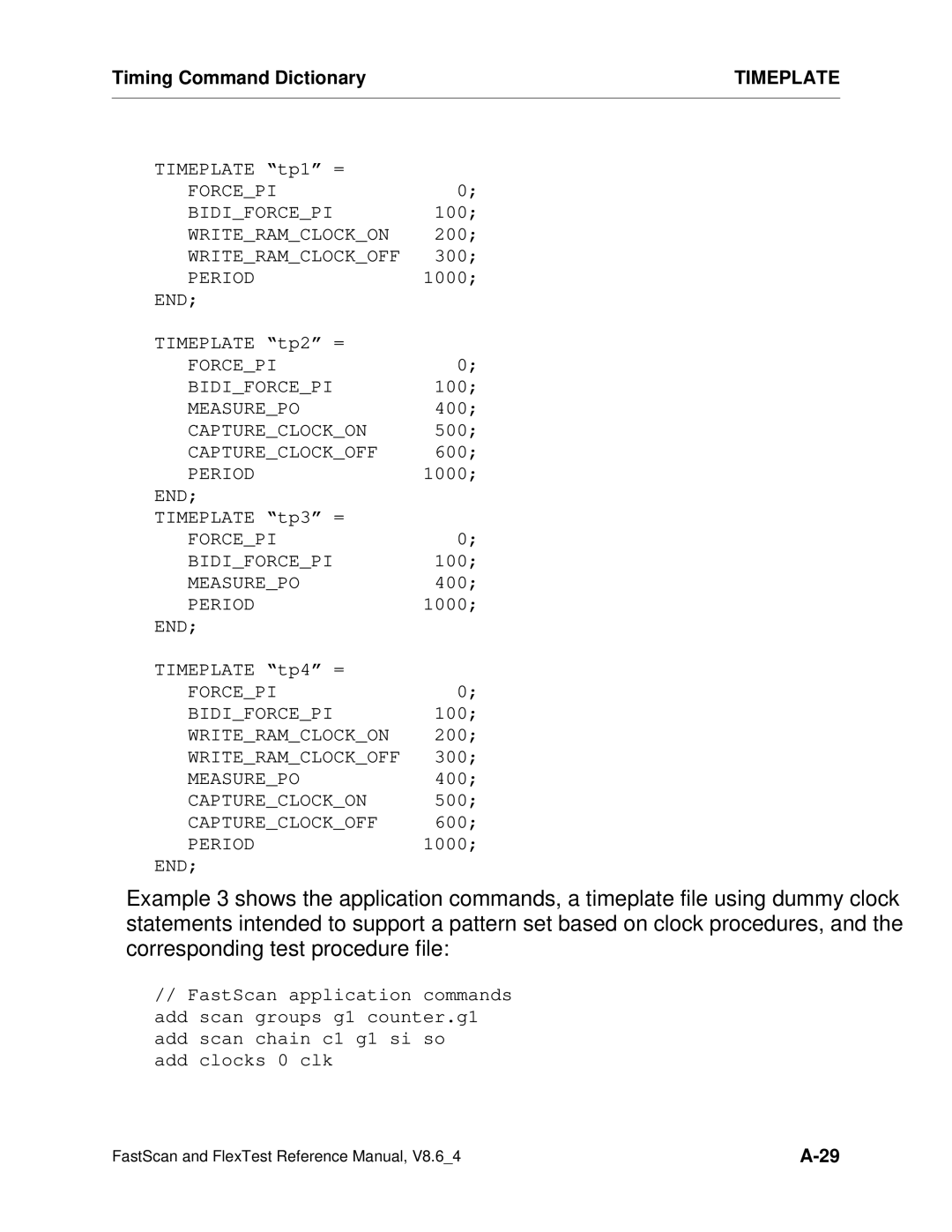Timing Command Dictionary | TIMEPLATE |
|
|
TIMEPLATE “tp1” = |
|
FORCE_PI | 0; |
BIDI_FORCE_PI | 100; |
WRITE_RAM_CLOCK_ON | 200; |
WRITE_RAM_CLOCK_OFF | 300; |
PERIOD | 1000; |
END; |
|
TIMEPLATE “tp2” = |
|
FORCE_PI | 0; |
BIDI_FORCE_PI | 100; |
MEASURE_PO | 400; |
CAPTURE_CLOCK_ON | 500; |
CAPTURE_CLOCK_OFF | 600; |
PERIOD | 1000; |
END; |
|
TIMEPLATE “tp3” = |
|
FORCE_PI | 0; |
BIDI_FORCE_PI | 100; |
MEASURE_PO | 400; |
PERIOD | 1000; |
END; |
|
TIMEPLATE “tp4” =
FORCE_PI0;
BIDI_FORCE_PI 100;
WRITE_RAM_CLOCK_ON 200;
WRITE_RAM_CLOCK_OFF 300;
MEASURE_PO400;
CAPTURE_CLOCK_ON 500;
CAPTURE_CLOCK_OFF 600;
PERIOD1000;
END;
Example 3 shows the application commands, a timeplate file using dummy clock statements intended to support a pattern set based on clock procedures, and the corresponding test procedure file:
//FastScan application commands add scan groups g1 counter.g1 add scan chain c1 g1 si so
add clocks 0 clk
FastScan and FlexTest Reference Manual, V8.6_4 |
